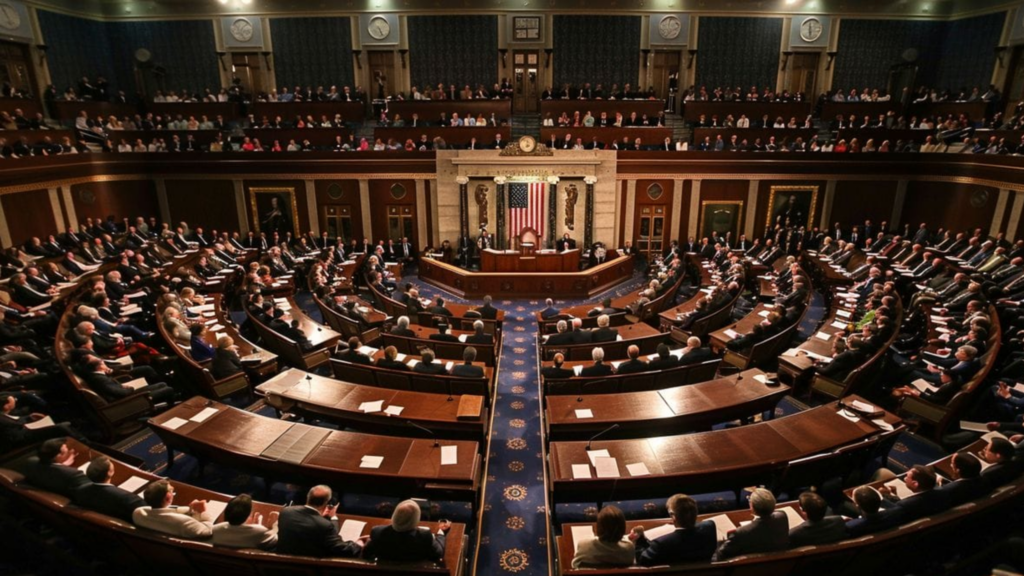The American Bankers Association (ABA) is calling on House leaders to halt the Federal Reserve’s plans to create a Central Bank Digital Currency (CBDC) for individual use. In a letter sent on Monday, the ABA urged support for a bill that aims to block this initiative.
Introduced by Congressman Tom Emmer (R-Minn.) in September 2023, the CBDC Anti-Surveillance State Act (H.R. 5403) seeks to prevent the Fed from issuing a CBDC. With backing from 165 cosponsors, the bill is slated for a vote this week.
The ABA’s letter to Speaker Mike Johnson and Minority Leader Hakeem Jeffries emphasized the association’s stance that a CBDC is unnecessary and could pose significant risks to the financial system. “The dollar is already digital today, and it is unclear how issuing a CBDC would improve financial inclusion or achieve other laudable goals,” the ABA stated.

The ABA raised concerns that a CBDC could disrupt the existing financial system in multiple ways. They argue it could alter the relationship between citizens and the Federal Reserve, undermine banks, exacerbate economic downturns, and complicate the Fed’s efforts to manage the economy effectively.
Despite these concerns, the US government has shown interest in digital currency. The New York Fed’s recent 12-week pilot program tested a simulated digital dollar, highlighting ongoing initiatives in this space. Although top officials like Fed Chair Jerome Powell and Governor Michelle Bowman have expressed reservations about a digital dollar, the research into its potential continues.
The ABA’s letter also highlighted the potential negative impact of a CBDC on banks. They fear it could divert money away from traditional banks and into the Federal Reserve, reducing banks’ ability to lend and stalling economic growth. Essentially, the ABA sees a CBDC as a formidable competitor that could draw deposits away from banks, making it harder for them to offer loans that drive local economies.
Further concerns have been raised about the FedNow Service, launched in October, which facilitates instant payments. Some experts worry that FedNow could serve as a precursor to a future CBDC.
The ABA’s plea to House leaders underscores the contentious debate surrounding the adoption of a CBDC in the United States. While the potential benefits of a digital dollar, such as improved financial inclusion and modernization of the payment system, are touted by some, the ABA and other critics remain skeptical about its necessity and potential fallout.
As the bill moves to the House floor, the financial sector and policymakers will be closely watching the outcome. The ABA’s strong opposition reflects a broader concern about the future of banking and the role of digital currencies in the US economy.
The ABA’s resistance to the Fed’s CBDC plans highlights a significant debate in the financial world. As digital currencies gain traction globally, the US must weigh the benefits and risks carefully. The upcoming vote on the CBDC Anti-Surveillance State Act will be a pivotal moment in this ongoing discussion.















